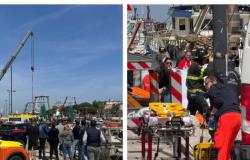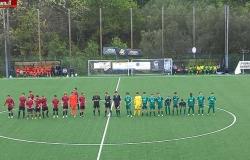An area with few connections is also less attractive for workers. If salary is one of the main levers for attracting talent to the area, the Cuneo area risks falling behind with lower average salary values compared to the Turin area and other areas of Northern and Central Italy.
This is one of the data that emerges – in a nutshell – from a substantial survey on 2023 wages presented yesterday in Confindustria Cuneo during the “Wages and beyond” conference and conducted on around twenty territories in the North and Center in which more than thousand companies for a total of approximately 100 thousand employees, analyzing 60 different tasks, finalizing a framework of salary differentials for each qualification. Around a hundred Cuneo companies were involved. «We are thinking about a topic that engages us from various points of view – commented Giuliana Cirio, director of Confindustria Cuneo -: management for those who administer human resources, from a political point of view for those who have to draw up the guidelines and which shakes consciences, in an Italy with families below the absolute poverty threshold, an offense to our civilization. The industry has the responsibility to be a beacon, inspiring fair bargaining and fair wages.”
The survey monitors salaries in individual areas, detects the value of digital skills, and provides useful tools for personnel management. For each reference professional figure, the salary averages were highlighted, which underline how the Granda offers lower salaries on average than other territories, especially the cross-border ones – such as the province of Como – influenced by Swiss competitiveness, but also the Triveneto and Turin and Milan hubs. In Piedmont it emerges that Cuneo has lower salaries on average than in the North of the region, in particular in Turin. However, the salary levels in figures 4.0 are similar. «Salaries depend on various factors including the professional profiles required in the province, in Piedmont the lowest salaries in the Cuneo area are also explained by the low propensity for worker mobility due to both the economic and time costs that they would have to incur to move , given the lack of adequate infrastructure – comment Elena Angaramo of the Confindustria Cuneo Study Center and Ivan Sinis of the Turin Industrial Union Studies Office who provided the main suggestions of the survey to an audience mainly of human resources managers -. Cities like Turin concentrate management centers with higher salaries and the capital feels more competitive with Milan.”
The data shows that 4.0 workers with stronger digital skills have an average salary value that is 6% higher than those with more traditional training. Smart working is still widespread: after the pandemic it is requested above all by professionals with high digital skills who transform it into a pre-requisite during a job interview. The data was collected for each of the over 85 thousand employees registered who carry out the 60 tasks examined: of these, 30 thousand have the possibility of carrying out their activities remotely. Michele Tiraboschi, president of the Cnel Information Commission, also spoke, with the observations and proposals of the National Council of Economy and Labor regarding the minimum wage. Confindustria’s position on the legal minimum wage and contractual minimums were described by Giacomo Bordone, delegate for industrial relations. Finally, speeches by Dario D’Addea of Alstom Ferroviaria and Alberto Tortone of Diageo Operations Italy.






